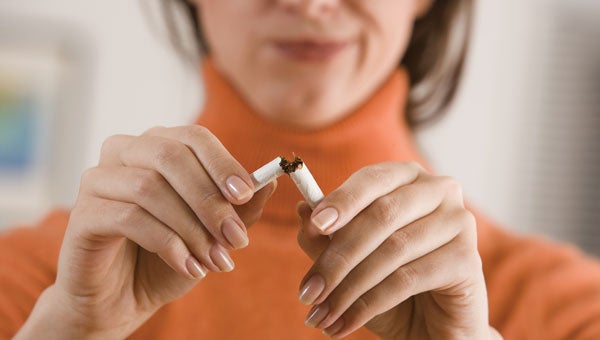Pulmonologist: Quitting is hard, but it helps
Published 12:01 am Thursday, November 20, 2014
Local pulmonologist Dr. Rob Garver estimates that if people stopped smoking, he’d have 50 percent fewer patients.
Today, Thurs., Nov. 20, is the annual day on which smokers across the nation take part in the American Cancer Society Great American Smokeout. The ACS event challenges people to stop using tobacco and helps people know about the many tools they can use to help them quit and stay quit.
Dr. Garver knows that’s hard for most smokers, even with help.
“Different people respond to different cessation aids,” he said. “I try to get people to start on their own with patches or gum. If they are engaged, and really interested in starting the process, then we will try other things.”
It has been more than 50 years since then-U.S. Surgeon General Dr. Luther Terry, a Red Level native, issued his warning about smoking. Since then, Garver said, there has been some reduction in the number of adult smokers.
Still, tobacco abuse is the largest substance abuse problem in the United States, and one of the results, chronic obstructive pulmonary disease, or COPD, is the third leading cause of death among Americans.
Dr. Garver and his patients are participating in research they hope will improve those statistics.
Dr. Garver and his staff have been doing clinical research studies since early 2013, and are seeing some success.
Pharmaceutical companies and health care providers are interested in developing new treatments, he said, both because of the prevalence, and because exacerbations of the disease can require hospitalization, which can be expensive.
Specifically, he said, some patients have diminished lung function with each exacerbation.
COPD is characterized by shortness of breathe, cough and sputum, wheezing, lower oxygen levels, and chest pain.
While the disease is chronic, Dr. Garver said that, after a few months, those who quit smoking will the see some improvement in the way COPD affects their lungs.
But he’s very careful not to berate patients who are smokers, as many are very hesitant to seek treatment.
“Smokers are not bad people,” he said. “They are hooked on a very addictive substance.”
Those who are affected by COPD and are interested in participating in the research may contact Garver’s office at 334.830.4551.
He said the goal is to reduce the number of flare-ups COPD patients have, as every exacerbation reduces lung function. Cold air is especially difficult for COPD patients, he said.
He strongly recommends that patients get vaccinated for both the flu and pneumonia.


